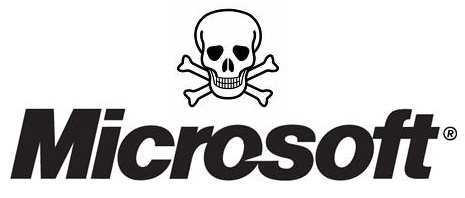
There’s an interesting and thought provoking essay at BetaNews by Joe Wilcox entitled “Why former employees say Microsoft can’t innovate“. It’s a rather myopic examination of the middle-management woes and culture of job protectionism that is harming Microsoft’s ability to truly create. Microsoft has grown a lot in the last couple years, and they’re up to almost 100,000 employees now. Any company that size is going to face specific challenges, and they simply can’t be as nimble as a three man startup in someone’s garage. Also, the software they create is used and relied upon every day by some very important clients, so there’s a natural amount of aversion to risk that should be prevalent in their culture. But has it gone too far?
The article concludes with
[N]o company’s organizational structure is perfect, because too many people put their personal ambitions before the company they work for. But companies can encourage mismanagement by the organizational structure, corporate culture and review and compensation processes. Based on my communications with dozens of former and current Microsoft employees over the last couple months, Microsoft needs to streamline its management processes, empower small groups to act like startups, reward risk-taking innovation and sharply reduce the number of middle managers.
I’m not a Microsoft apologist, but I think it would have been interesting had Wilcox talked to some folks who think that the current Microsoft culture is working well. Maybe he tried, and simply couldn’t find any?
I shared the link with a former Microsoft employee, who observed that much of the problem lies with unintended redundancy: as the company continues to grow, it’s harder and harder to keep track of who’s doing — or already done — what, so efforts are duplicated. “There is a lot of redundancy across product groups”, says my contact. “It is a big problem that frustrates the employees when they have a cool idea and are crippled to move into a particular space because it would potentially compete with another team.” The end result? Mediocrity.
According to my contact:
In addition to the inefficiency, there were some cases where teams ended up competing internally for ownership. At that size, for some teams, it could also be challenging to fully own their space in efforts to avoid cannibalizing another business within the company.
As I said, an organization as large as Microsoft must take some care to avoid unnecessary disruption to its customers. But given the incredible number of markets in which Microsoft participates, a one-size-fits-all culture to development and innovation simply can’t work for the long term. The kind of risks that the operating system and SQL server groups face are different from those on the entertainment or mobile groups. Maybe the problem lies deeper, in how Microsoft chooses to align its product groups? Business, Entertainment & Devices, Online Services, Server & Tools and Windows & Windows Live … entertainment includes the XBox, clearly, but does all the Windows Mobile stuff fall under “devices”? Does it make sense to lump all of entertainment together with all of “devices”? I’m not sure.
What do you think? Does Microsoft’s culture provide them the stability they need to maintain their existence for the next ten years, or is it hampering their ability to effectively compete?